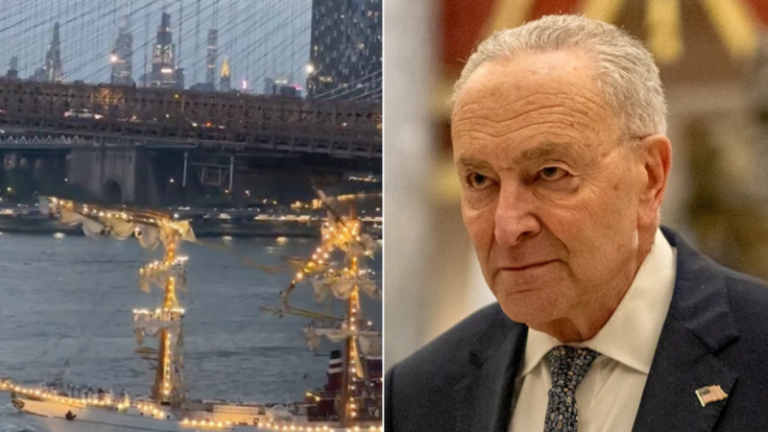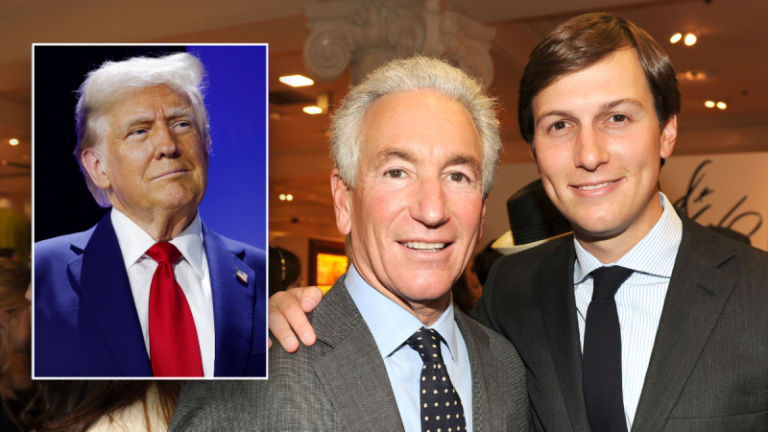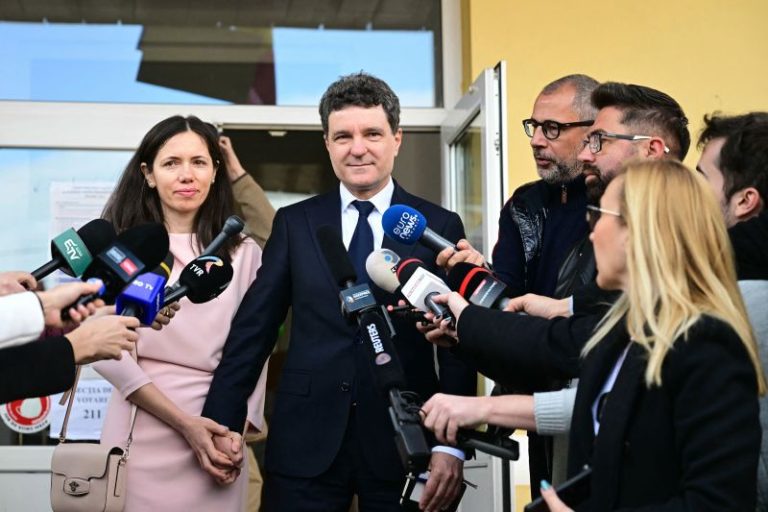Israel launched an extensive ground operation in Gaza Sunday in addition to an intense air campaign that health officials in the territory say killed over 100 people overnight and shuttered the last functioning hospital in the enclave’s north.
The Israeli military’s ground operation in northern and southern Gaza comes as international mediators push for progress in ceasefire talks.
Hamas and Israel began indirect talks in the Qatari capital Doha Saturday, with senior Hamas official Taher Al-Nunu confirming that “negotiations without preconditions” had started, according to Hamas-run al Aqsa TV.
While there is some optimism around the talks, a breakthrough is looking uncertain. Israel on Sunday indicated its openness to ending the war in Gaza if Hamas surrenders, a proposition the militant group is unlikely to accept. Hamas has said it will release all of the Israeli hostages if there are guarantees Israel will end the war.
“If Hamas wants to talk about ending the war through Hamas’s surrender, we will be ready,” an Israeli source said.
Hours later another senior Hamas leader, Sami Abu Zuhri, denied and contradicted that proposal, posting a statement on Hamas-run Al-Aqsa TV Telegram: “There is no truth to the rumors regarding the movement’s agreement to release nine Israeli prisoners in exchange for a two-month ceasefire.”
He went on to say, “We are ready to release the prisoners all at once, provided the occupation commits to a cessation of hostilities under international guarantees, and we will not hand over the occupation’s prisoners as long as it insists on continuing its aggression against Gaza indefinitely.”
The Israeli military has claimed that their new military campaign – called “Gideon’s Chariots,” a reference to a biblical warrior, and announced late on Friday – has brought Hamas back to the negotiating table. And due to the “operational need,” Israel’s Prime Minister’s Office said Sunday that the country will allow a “basic amount of food” to enter the Gaza Strip, to prevent a hunger crisis in the enclave, which Israel says would jeopardize the operation.
The campaign was launched “to achieve all the goals of the war in Gaza, including the release of the hostages and the defeat of Hamas,” the Israel Defense Forces said in a statement.
“During the operation, we will increase and expand our operational control in the Gaza Strip, including segmenting the territory and moving the population for their protection in all the areas in which we operate,” Israel Defense Forces (IDF) spokesperson Effie Defrin said on Sunday.
But analysts and officials say it’s more likely that Hamas agreed to restart the talks following a visit from US President Donald Trump to the Middle East.
This past week, Netanyahu directed the Israeli negotiating team to head to Qatar for talks, but made clear that he is only committed to negotiating a proposal put forward by the US’ Middle East envoy Steve Witkoff, which calls for the release of half the hostages in return for a temporary ceasefire. That proposal did not guarantee an end to the war.
Trump was in Doha Wednesday as part of a Middle East trip that skipped Israel. Trump said this month that he wanted an end to the “brutal war” in Gaza.
He also bypassed Israel twice this month in reaching bilateral deals with regional militant groups. Hamas released an Israeli-American hostage last week, and the Houthis agreed to stop firing at American ships in the Red Sea while pledging to continue fighting Israel.
Trump, however, denied that Israel had been sidelined. “This is good for Israel,” he said. But on Thursday, he said he wanted the US to “take” Gaza and turn it into a “freedom zone.”
“I have concepts for Gaza that I think are very good, make it a freedom zone, let the United States get involved and make it just a freedom zone,” Trump said from Qatar.
While in the Gulf, Trump also acknowledged that people are starving in Gaza and said the US would have the situation in Gaza “taken care of.”
Meanwhile, the UN and prominent aid organizations are raising the alarm over Israel’s new offensive in Gaza, saying it is civilians who are bearing the brunt of the assault.
Entire families were killed while sleeping together, according to the health ministry.
As the bombardment continues and the death toll rises, Gaza’s healthcare system is being pushed further to the brink.
Over the past week, the Israeli military has carried out strikes near several hospitals across the enclave, including the Indonesian Hospital in Beit Lahiya, the last remaining functioning medical facility in northern Gaza, rendering it out of service.
On Sunday, Al-Sultan told British charity Medical Aid for Palestinians (MAP) that the hospital is “completely besieged,” that nobody is able to reach it, and that its intensive care unit was also being hit.
“We are deeply helpless,” he said, adding that the situation is “beyond alarming.”
Northern Gaza’s Al-Awda hospital saw a “harrowing night” with bombing in the vicinity of the hospital, the facility’s director Dr. Mohammed Salha told MAP on Sunday.
Salha said the hospital’s medical systems – oxygen for ventilators, electricity and water supplies– were severely damaged. Quadcopters flying over the area hampered the movement of medical teams in and out of the hospital, and a shortage of medical supplies and fuel was making it difficult for the hospital to continue providing essential care.
On Sunday, the Palestinian Ministry of Health said that “all public hospitals in the northern Gaza Strip are now out of service.”
Prior to Israel announcing Sunday that it will allow a “basic amount of food” to enter the Gaza Strip, the UN warned the enclave’s entire population of over 2.1 million people is facing a risk of famine following 19 months of conflict and mass displacement, exacerbated by Israel’s 11-week blocking of aid.
A controversial American-backed organization, Gaza Humanitarian Foundation (GHF), tasked with delivering aid to the enclave, welcomed the Israeli announcement about allowing food aid into Gaza as a “bridging mechanism” until the group is fully operational.
The non-profit was set up at the urging of the American government to help alleviate hunger in Gaza, while complying with Israeli demands that the aid not reach Hamas.
In a statement, the group’s executive director Jake Wood said, “Today’s announcement marks an important interim step. We expect GHF’s new aid mechanism—including the establishment of four initial Secure Distribution Sites—to be up and running before the end of the month.”
The new organization has come under criticism from top humanitarian officials, who warn that it is insufficient, could endanger civilians, and even encourage their forced displacement. The initial sites only being in southern and central Gaza could be seen as encouraging Israel’s publicly stated goal of forcing Gaza’s population out of the north, the UN warned.
But the foundation says it has asked Israel to help set up distribution points in the north. The UN also warned that the Israeli military’s involvement in securing the sites could discourage aid recipients.
Israel’s National Security Minister, Itamar Ben-Gvir, called the Prime Minister’s Office’s aid decision a “serious mistake,” asserting that any aid entering Gaza would “certainly fuel Hamas.”
The number of people killed by Israel’s offensive in Gaza in the wake of the October 7, 2023 attacks now exceeds 53,000 – the majority of whom are women and children, the health ministry said Thursday.
Despite the resumption of talks in Qatar, Omar Qandil, whose brother, sister-in-law and 4-month-old niece were killed in an overnight airstrike in central Gaza, said he feels the world has turned a blind eye to their suffering.
“They were all asleep… all targeted in their bedroom,” he said.
“I don’t know what we (can) say anymore, we (have) spoke a lot. There is no one looking at us: not Arabs not Muslims, no one.”
The IDF on Sunday said its new offensive in Gaza is happening “in full coordination” with the Hostages and Missing Families Forum, and that the military is trying to prevent harm to the remaining hostages; but the forum has decried the operation saying it would endanger those still held captive in the enclave.
“The current policy is killing the living and erasing the dead. Every bombing, every delay, every indecision increases the danger. The living hostages face immediate mortal danger, and we risk losing the deceased forever,” said Hagai Levine, the head of the forum’s health team, who the group said co-authored a report about the dangers the latest Israeli operation poses to the hostages.
This post appeared first on cnn.com










